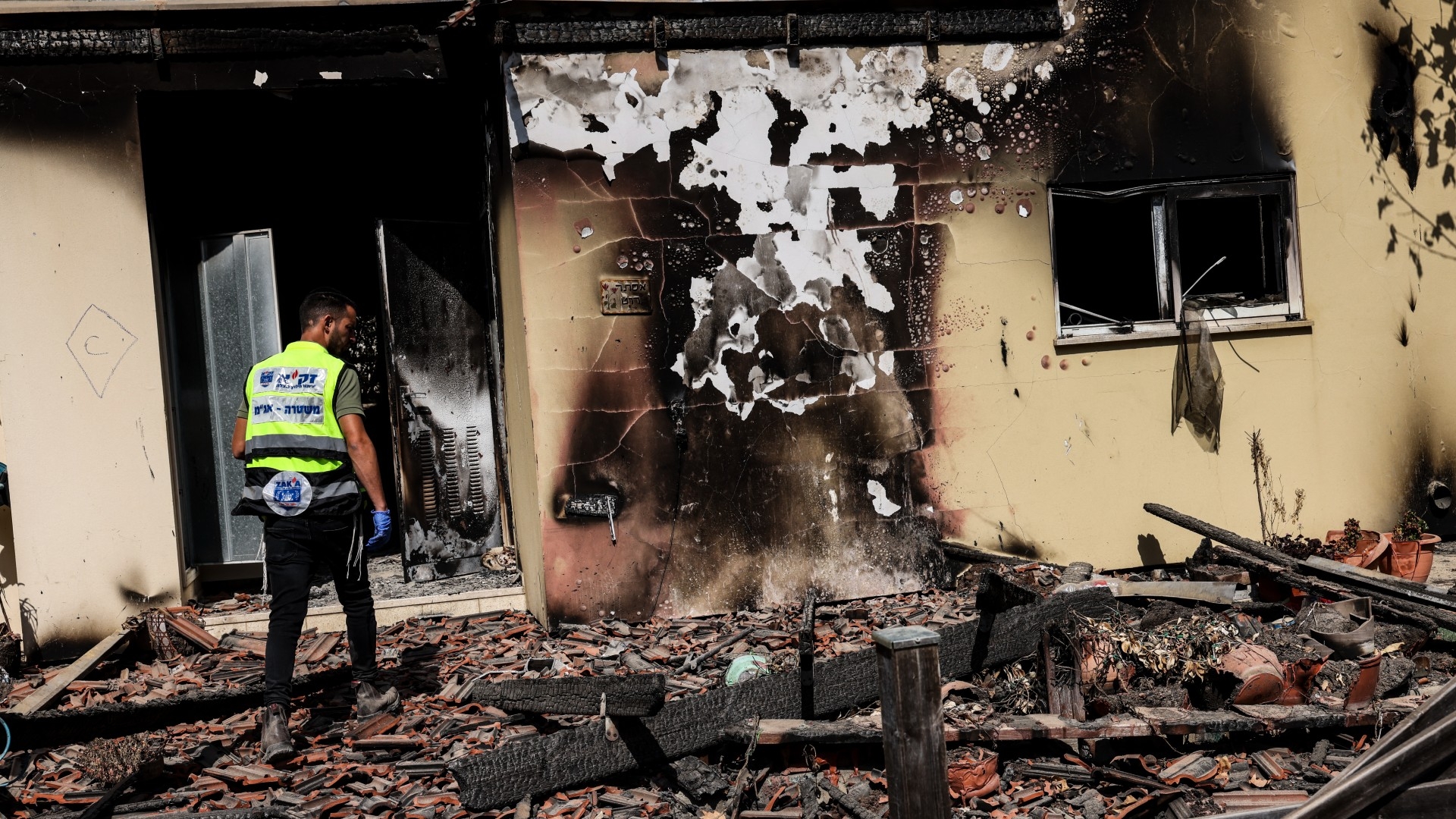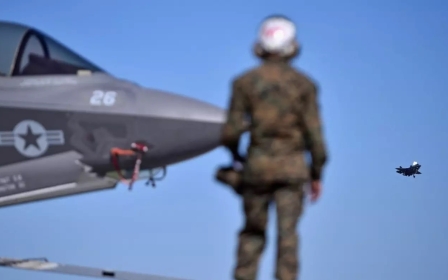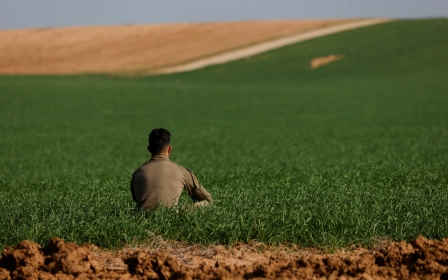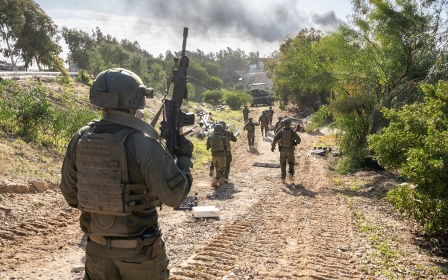Sexual abuse allegation in Kibbutz Be'eri on 7 October 'not true', says spokesperson

An Israeli kibbutz spokesperson has denied allegations made by a New York Times article of sexual assault committed against women members during Hamas-led attacks on 7 October.
In a report published by The Intercept earlier this week, a spokesperson for Kibbutz Be’eri denied claims made in a Times piece on 28 December.
The article, titled "Screams without words", described three alleged victims of sexual assault, when Hamas and other Palestinian groups launched a surprise attack on southern Israel killing around 1,140 people.
Two of the alleged victims of sexual assault were unnamed teenage sisters from Kibbutz Be'eri, aged 13 and 16. The Intercept used the details from the Times piece to identify the girls as members of the Sharabi family.
Michal Paikin, spokesperson for the kibbutz, denied that the two girls were sexually abused.
New MEE newsletter: Jerusalem Dispatch
Sign up to get the latest insights and analysis on Israel-Palestine, alongside Turkey Unpacked and other MEE newsletters
“You’re talking about the Sharabi girls?” he told The Intercept. “No, they … were shot and were not subjected to sexual abuse.”
The Times article mainly relied on the testimony of an unnamed Israeli special forces paramedic.
It also cited unidentified neighbours in Be'eri who said the girls' bodies were found separated from their families. However, the Sharabi family has disputed this detail.
“They were just shot, nothing else had been done to them,” their grandmother Gillian Brisley told Israel's Channel 12 in a recent interview.
Prior to the Times's article, Sharabi family members gave several interviews which appeared to contradict the claims made in the story. However, none of these interviews were used in the Times piece.
On Monday, Pramila Patten, the UN special envoy for sexual violence, reported that there was evidence to suggest sexual violence occured during the 7 October attack.
The report stated that sexual violence occurred at the Nova music festival site and its surroundings, Road 232, and Kibbutz Re'im. It was unable to determine whether it occurred in Be'eri.
Last month, UN experts decried reports of rape and sexual assault of Palestinian women and girls held in Israeli detention.
The independent experts, part of the UN’s fact-finding and monitoring mechanisms of the Human Rights Council, confirmed in a statement receiving reports of Palestinian female detainees being subjected to “multiple forms of sexual assault,” with at least two detainees reportedly raped, while others were allegedly threatened with rape and sexual violence.
They also described women being strip-searched by male Israeli officers and noted the circulation of degrading images of detainees online by Israeli soldiers.
This article is available in French on Middle East Eye French edition.
Middle East Eye delivers independent and unrivalled coverage and analysis of the Middle East, North Africa and beyond. To learn more about republishing this content and the associated fees, please fill out this form. More about MEE can be found here.




